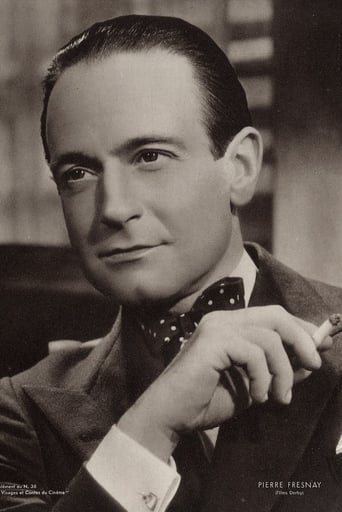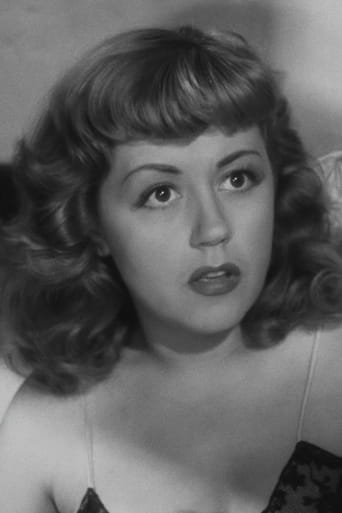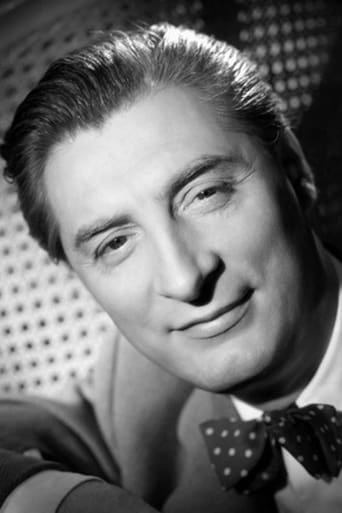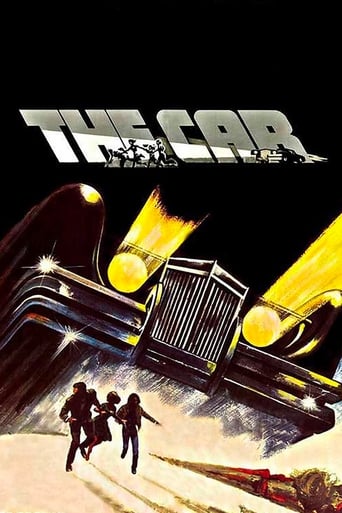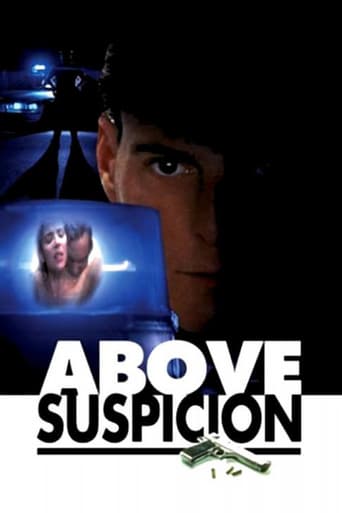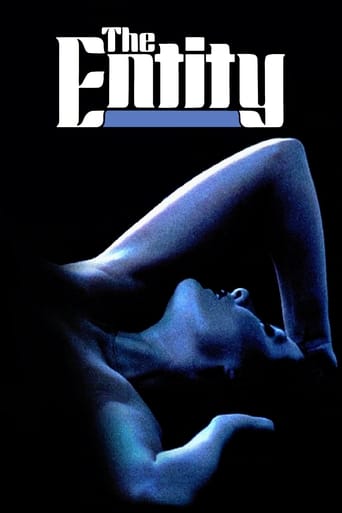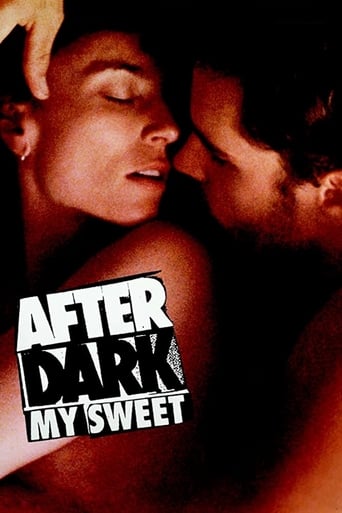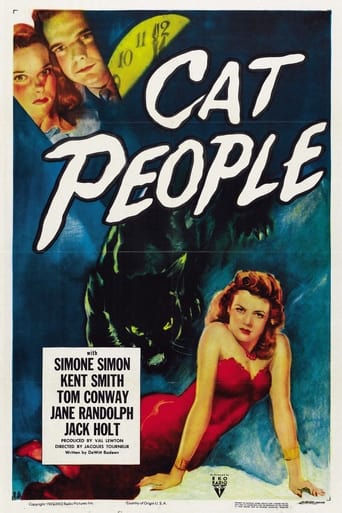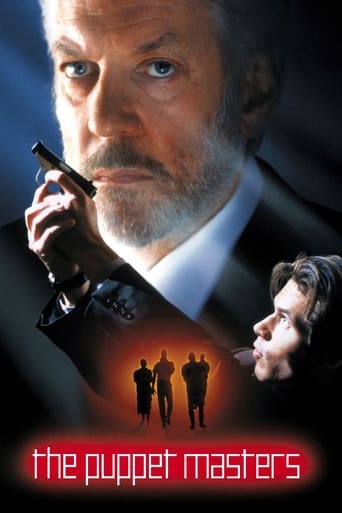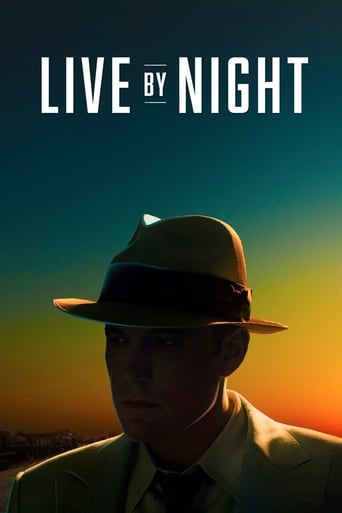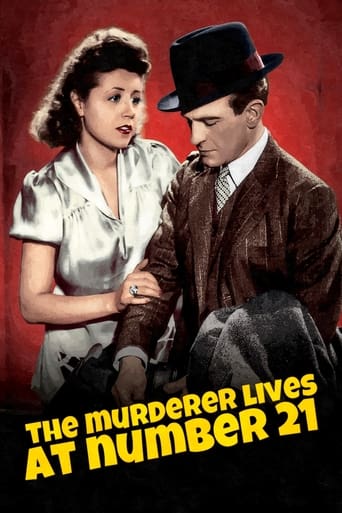
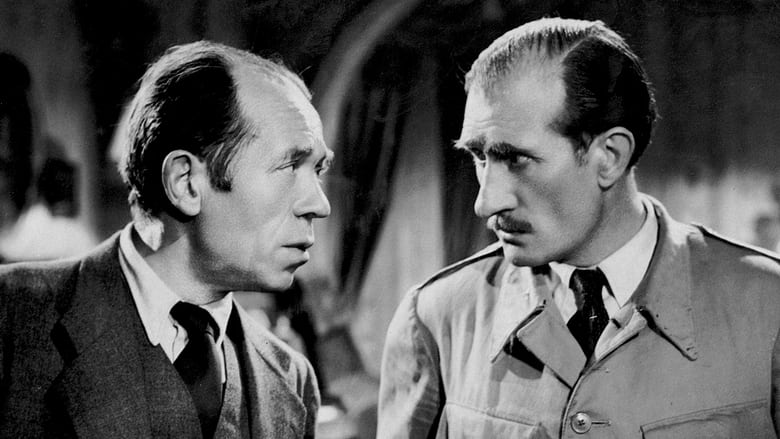
The Murderer Lives at Number 21 (1947)
Paris, France. Commissaire Wens follows the lead of a ruthless murderer to an unexpected place.
Watch Trailer
Cast


Similar titles
Reviews
And just when I thought the title worked like a final revelation, it just ended up being the starter of the second act of Henri-George Clouzot's classic film's debut which makes sense. Why would you tell right from the start where the villain lives except if the 21 number is a very broad information, like the location of a seedy pension occupied by people who doesn't strike as the most recommendable ones. There are obviously four or five potential murderers and the trick is to know 'who done it'?And whodunit is the word, as the film opens with a murder that is as violent and merciless as it's cleverly shot. A bum who's just won at the lottery spent the whole time buying drinks and bragging about things he doesn't have the slightest notion about, the bar opening allows us to have a few discussions about the mysterious serial killer who torments Parisian street (maybe a nod to a villainous regime that brandished its flag on the Eiffel Tower). The killer's trademark is to leave mysterious cards with the name 'Monsieur Durand', but totally oblivious to the threats, the imbibed hobo goes his way home Then, in a nice technical twist, a banal traveling shot took more dramatic proportion, the man walked faster as if he tried to escape from the camera, instantly marking the villain's POV.Clouzot has often been referred as the second Hitchcock and I suspect this has more or less to do with his 'smaller' (in quantity but not quality) body of work. But Clouzot is a legitimate Master of Suspense and the murder scene would have made Hitch very proud, and the two men have more in common than the use of suspense and tricky shots, they had some dark sense of humor. Clouzot's humor would confine to cynicism and a rather pessimistic take on human nature, but aftermath scenes are oddly lighthearted and funny. The last killing being one too many, it threatened the Ministry of Interior's position, so we witness a series of orders' transfer from one hierarchy to another, and the lower the status is, the smaller the delay and the less polite the injunction. It all ends with Detective Wens (Pierre Fresnay) having two days to investigate the murder.The movie loses its way a little for exposition's sake, so we get to know Wens' noisy girlfriend, a wannabe stage artist named Mila and played by Suzy Delair (who was the voluptuous singer in "Quai des Orfèvres"), she hears from a manager that he only hires people who make the headlines, so for some reason, she decides to look for the mysterious murderer. That doesn't really make sense, nor the fact that the two leads are too opposite to satisfy as a couple. Fresnay plays a sort of French version Sherlock Holmes, (the original play was actually set in London), he's sophisticated and histrionic while Mila is more of a popular street-smart Parisian girl. Thankfully, the film promptly gets to the point where a snitch reveals where the murderer lives.So Wens enters the pension, disguised as a pastor, and discovers some odds but colorful occupants many of them, like Fresnay and Delair are Clouzot regulars and it's one of the film's delights to see them interact and compete in terms of nastiness. The obligatory Pierre Marquay is Collin, a man who manufactures headless puppets as tributes to the criminal, Noel Roquevert, who played nicer and more gentlemanly persons, is an embittered doctor with a criminal record, and Jean Tissier is Professor Lallah-Poor, a turban-wearing master of illusions, there's also a blind ex-boxer with a beautiful nurse (Huguette Vivier), a wannabe writer (Maximilienne), an overweight manager and a janitor who spends time whistling and imitating animal sounds.At that point, you expect the rest of the film to go like these one-location Agatha Christie-like mysteries novels, enjoying the delightful exchanges and the great performances from all the protagonists until Wens spots the guilty one. Speaking of this, I thought Fresnay as the ringmaster played his part in a s slightly over-the-top way, even when he's not supposed to act in the film, he would be more restrained and dramatic in Clouzot's next film "Le Corbeau") but this is a minor flaw, easy to overlook. If you love a movie to go beyond your expectations, to give you a little more than what you expect, this is the film. And it all occurs in that great third act.Not only it provides a satisfying resolution to the plot, but also a very clever one, that should have inspired a Hitchcock movie without even him being accused of plagiarizing. As a matter of fact, the plot is so original that I can't recall a famous movie working on the same basis. And originality is certainly one of Clouzot's strongest suits, as his equally suspenseful and thrilling movies never relies on the same schemes and they always manage to wow the audience, while making an interesting social commentary on a specific business or demography of French society, here it can be argued that the Police isn't shown under the kindest light, which in the context of occupied France, makes sense.Speaking of the Occupation, I found the concluding shot rather puzzling until I discovered it was one of the greatest finger gestures toward the Nazi occupants, which also proves where Clouzot stood for and it went unnoticed by censors because it was both ingenuous and subtle; and so full of promises of the emerging talent of a director whose legacy has so much been overshadowed by Hitchcock.
By and large, individual genres do not mix well in cinema. For this reason, most filmmakers tend to make films belonging to a particular genre. However, there have been exceptions to this role. One can cite the films by Alfred Hitchcock where comedy has been mixed with suspense and thriller. French film 'The Murderer Lives at Number 21' also belongs to this category of films where one can find an absolutely perfect harmony of comedy with suspense. In this film, Clouzot has used all tricks up his sleeve to entertain his audiences up to the hilt. There is enormous interest to be taken in all scenes as Clouzot's characters speak a lot about France and its people. French culture especially mannerisms of ordinary French people have been vividly described. A simple visit to the guest house would suffice to know how it is difficult for the police to arrest a killer who has put the entire city in trouble because of his foolishness. As a family film, 'L'Assassin habite au 21' does enormous justice to the topic portrayed in the film. However, those viewers who have placed bets on the ending would be disappointed.
Warning : possible (light) spoilerThis wonderful noir thriller has the simplest of plots ; a serial-killer is ravaging Paris in the 40's, always signing his crime by leaving on the scene his card : "Mr Durand".The population is in shock, the police powerless, as the killings are so unpredictable ; Commissaire Wens (Pierre Fresnay) has just been given a few days to solve the issue, when his luck turns suddenly : an ex-con, now a rag and bone man, whilst visiting a boarding house attic, has seen a pile of those famous "Mr Durand" cards...Now it's clear in the Commissaire's mind, "the murderer lives at the 21st"...But who is the murderer?Wens, as an undercover Pastor, does his inquiry...Very soon, out of the colorful and quirky characters living permanently in the place, he brings down his list of suspects to three individuals, all equally creepy...Out of those three ones, there is the dreaded Mr Durand, a true psychopath.Clouzot's great mastery shines in this film with the choice of the three suspects, whose balance in temper, personality, creepiness and sheer hate for each other is absolutely top notch, but also with his directing, for he's carefully, extremely skillfully, setting a trap for the viewer, and when the truth is suddenly revealed, one just bangs his forehead and says "How good can that guy be so that I didn't think of it yet?"It could have been a very good film just with Clouzot's directing, but the three suspects(Noel Roquevert, Jean Tissier, Pierre Larquey), fantastic actors of a time when acting second roles was taken as seriously as being a star, make this a very enjoyable masterpiece.A must-see.
This is a nice, light-hearted prelude to the masterpieces Henri-Georges Clouzot was to create in later years, starting right off in the following year with _Le Corbeau_.What unites both _Le Corbeau_ and _L'assassin habite au 21_, is the leading star Pierre Fresnay; he's excellent in both movies, although a lot more sombre in _Le Corbeau_ (of course), whereas here, he seems to be and behaves like a French variation of Cary Grant of the screwball era. (Indeed, he could have been intended to serve as just that, due to US movies being illegal in France at the time.) Another aspect uniting the two movies is their political sterility; no wonder, both having been made under German occupation of France; yet, funnily enough, it's possible to uncover political metaphors in both movies, although not as clearly here in _L'assassin habite au 21_, which is a comedy just as much as it is a murder mystery. So, you could try and uncover hidden meanings behind the police officers' "passing the buck" from one to another, everyone refusing to assume responsibility; or that (spoiler!) the culprit is shown to be a collective body of people, rather than an individual.The dialogues are witty, smart, fast-moving, and surprisingly fresh for a movie that is over 70 years old. Eroticism abounds. The supporting cast is nice, and Jean Tissier shines as Lallah Poor, the fakir.Very nice black-and-white cinematography, at times in pointedly plush settings (as if to distract the cinema-goers from the ongoing war); you get a nice overview of fashion of France in the early 1940s; see not just all the ladies in the movie (including the "matron" character played by Odette Talazac), but also the three little girls (the grocer's daughters) giggling in the audience -- where would you find kids dressed elaborately like that nowadays? Even though this is (also) a comedy, you can sense that the director has the touch for the "noir"; the scenes in Paris back alleys (particularly the murderous one at the beginning of the movie, shot from a unique "first-person" perspective) already show the proper atmosphere that was to make Clouzot famous in his later films. On the whole, therefore, _L'assassin habite au 21_ is a curious mixture and integration of at least 3 elements, each of them succeeding in its own right: comedy (particularly in exchanges between the detective and his girlfriend); Agatha Christie-like whodunnit; and noir overtones -- as if always looming in the background, and something a lot more sinister than your typical cozy domestic murder-mystery. The culprits are shown to be thoroughly nasty human beings, as if the director wanted to suggest: they are the rule, dear audience, rather than exceptions.The movie is only 84 minutes long, but feels longer due to all the rapid talk, fast action and rich content. Although _L'assassin habite au 21_ may not be great art, it's definitely an example of quality entertainment.


